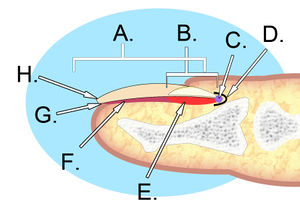Milk Teeth Care: Fix Adult Smiles
The journey to a perfect smile often begins in childhood, with the care of milk teeth laying the foundation for a lifetime of oral health and confidence. Milk teeth, also known as primary teeth, play a crucial role in the development of a child’s dental and overall health. Despite their temporary nature, these teeth are essential for chewing, speaking, and guiding the growth of permanent teeth. However, many adults struggle with the consequences of poor milk teeth care, ranging from misaligned bites to missing teeth. The good news is that with advancements in dental technology and techniques, it’s never too late to fix adult smiles and restore the confidence that comes with a healthy, beautiful set of teeth.
The Importance of Milk Teeth Care
Proper care of milk teeth is vital for several reasons. Firstly, these teeth help children chew and digest food properly, ensuring they receive the necessary nutrients for growth and development. Secondly, milk teeth hold the space for permanent teeth, guiding them into their correct positions as they erupt. If a milk tooth is lost prematurely due to decay or trauma, the surrounding teeth may shift, causing crowding or other alignment issues when the permanent teeth come in. Moreover, the health of milk teeth can influence the development of the jaw and facial structure, affecting not just the appearance of the smile but also the overall facial aesthetics.
Common Issues Stemming from Poor Milk Teeth Care
Adults who experienced neglect or issues with their milk teeth care may face a variety of dental challenges. These can include:
- Misaligned Bites: When milk teeth are lost too early or are improperly aligned, it can lead to issues with the bite, where the upper and lower teeth do not come together properly. This can cause difficulties in chewing, increased wear on teeth, and even jaw pain.
- Gaps and Spacing: Premature loss of milk teeth without proper management can result in gaps between the permanent teeth, affecting the appearance of the smile.
- Orthodontic Issues: The improper development or early loss of milk teeth can necessitate orthodontic treatment to align the permanent teeth correctly and improve both the function and appearance of the smile.
- Increased Risk of Decay and Gum Disease: Poor care of milk teeth can set a pattern for future oral health habits, potentially leading to higher risks of tooth decay and gum disease in adulthood.
Solutions for Adult Smile Restoration
Fortunately, modern dentistry offers a wide range of solutions for adults looking to address issues stemming from poor milk teeth care. These include:
Orthodontic Treatments
Orthodontics is not just for teenagers; many adults are now seeking orthodontic treatments to correct misalignments and improve the appearance of their smiles. With advancements in technology, there are more discreet options available, such as clear aligners and ceramic braces, which can make the treatment process less noticeable.
Dental Implants
For adults missing one or more teeth due to the premature loss of milk teeth or other reasons, dental implants offer a highly effective and long-lasting solution. Implants consist of a titanium post that is surgically placed in the jawbone, atop which a crown is placed, restoring the natural look and function of the tooth.
Cosmetic Dentistry
Cosmetic dentistry encompasses a variety of procedures designed to improve the appearance of teeth and enhance the smile. This can include veneers, bonding, and teeth whitening, among others. These treatments can address issues such as gaps, discoloration, and misshapen teeth, providing a more uniform and aesthetically pleasing smile.
Preventive Care
Perhaps the most critical aspect of maintaining a healthy smile is preventive care. Regular dental check-ups, along with good oral hygiene practices such as brushing and flossing, can prevent many of the issues that lead to the need for restorative treatments.
Implementing a Preventive Care Routine
A key component of maintaining dental health and preventing future issues is establishing a consistent preventive care routine. This includes:
- Regular Dental Visits: Scheduling regular check-ups with a dentist can help identify potential issues early, when they are easier and less expensive to treat.
- Daily Hygiene Practices: Brushing teeth at least twice a day and flossing once a day can significantly reduce the risk of tooth decay and gum disease.
- Dietary Choices: Limiting sugary and acidic foods and beverages can help prevent tooth decay and erosion.
Conclusion
The care of milk teeth is the first step in a lifetime journey of oral health, laying the groundwork for a beautiful and functional smile in adulthood. While poor care of milk teeth can lead to various dental issues, the array of modern dental treatments and technologies offers numerous solutions for adults seeking to restore and perfect their smiles. By understanding the importance of milk teeth care, addressing any resulting issues, and implementing a rigorous preventive care routine, individuals can ensure a healthy, confident smile that lasts a lifetime.
How often should I visit the dentist to ensure my smile remains healthy?
+It is recommended to visit the dentist at least twice a year for regular check-ups and cleanings. This frequency can help in the early detection and treatment of any dental issues, ensuring your smile remains healthy and vibrant.
What are the benefits of addressing milk teeth issues in adulthood?
+Addressing milk teeth issues in adulthood can significantly improve the appearance and function of your smile. It can also boost confidence, improve chewing and speaking abilities, and prevent further dental complications that could arise from untreated issues.
Are there any home remedies or practices that can help in maintaining a healthy smile?
+Besides regular brushing and flossing, practices such as oil pulling, using a straw when consuming acidic beverages, and chewing sugar-free gum after meals can help maintain oral health. However, it’s essential to consult with a dentist before adding any new practices to your routine.



